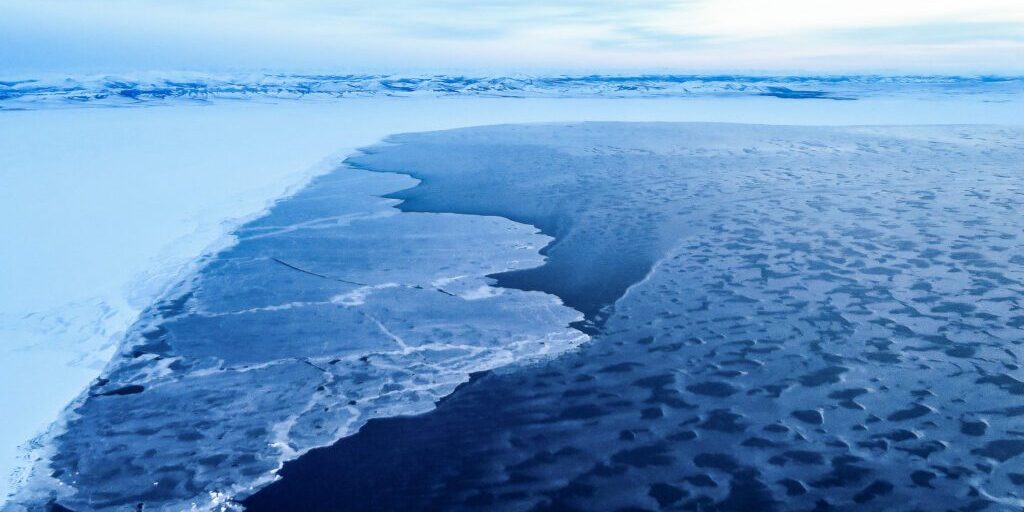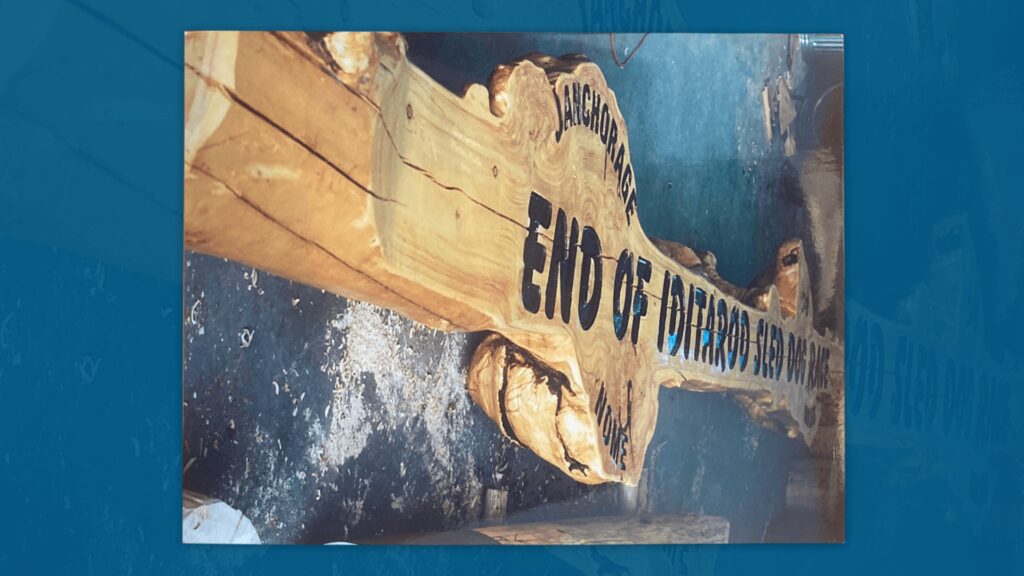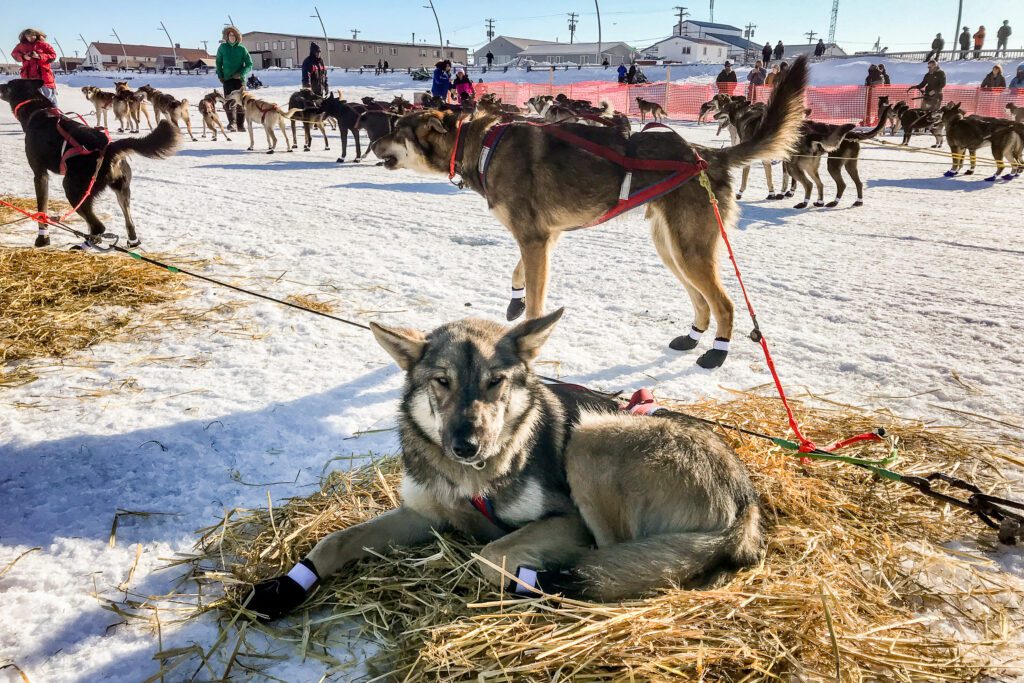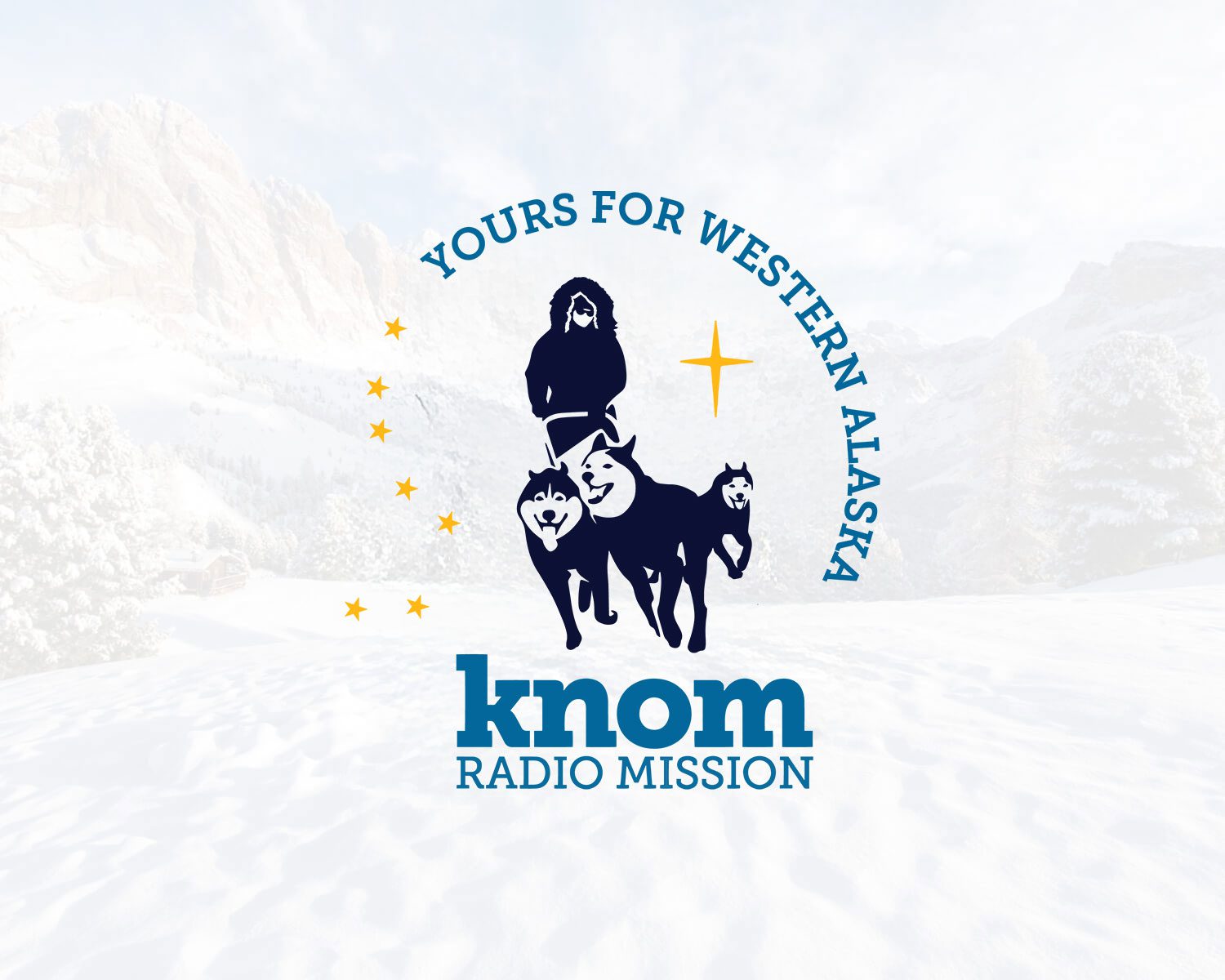Shaktoolik’s city leaders decided to close their official checkpoint for the Iditarod trail sled dog race on Friday due to concerns over the spread of COVID-19. They planned to leave the straw and drop bags for mushers at the ruins of the old village site, two miles away.
But as KNOM’s Emily Hofstaedter reports, Shaktoolik residents still wanted to do more for the 2020 Iditarod teams.
The trail from Shaktoolik to Koyuk is one of the most exposed sections, mushers have little opportunity to take shelter from the sometimes-fierce winds along the sea ice of the Norton Sound.
When Hannah Lynn Sookiyak heard that mushers were getting no more than food and drop bags in Shaktoolik, she started to plan.
“My husband and I were sitting on the couch thinking about what we could do. And I said maybe if I post on Facebook we’ll find some help and maybe we’ll just start from there.”
– Hannah Sookiyak
And the community came out in full force. Most of the buildings had been scrapped or totally weathered away, but they found one little house that had four walls, a roof, and some potential.
“At first they said when they got here it looked so hopeless. But people just stepped in and started coming, even if they did something little. It helped a lot and it just started coming together.”
– Hannah Sookiyak
One resident plowed a large lot so dog teams could pull out and rest on straw. Then someone brought a woodstove, another brought a generator, and others brought tables and cots to make a resting place.

Lynda Bekoalok is an Iditarod Trail Committee (ITC) member and a teacher in Shaktoolik. She found herself as sort of the unofficial coordinator of the temporary checkpoint.
“There was four feet of snow inside the house so we all had to shovel that out. And it was frozen so they’d shovel for a while and then shovel more as it melted. They cleaned out the house and they’ve had the wood stove going trying to dry it out. And they put (plastic insulation) over the windows to keep the wind out.”
– Lynda Bekoalok
There’s a clothes- line for drying gloves and coats over the roaring wood stove and a pile of logs sits by a table piled high with food and coffee.
They have almost everything a normal checkpoint would have but it isn’t manned by any official Iditarod staff, so mushers times are not being updated on the leaderboard when they reach the cabin. There isn’t a veterinarian on-site either.
Bekoalok has been in close contact with Mark Nordman, the Race Director, who told her that mushers will have to bring dogs to Koyuk before they are dropped. In a true emergency, he told her they would try and get the vet in from Unalakleet.
Leaders know that the change is hard for the community. Axel Johnson is the tribal council president and says he is proud of the effort community members have made to take care of mushers while keeping Shaktoolik safe. While the decision to close the checkpoint was made by the city government, not the tribe, Johnson says the council stands behind it.
“The tribe has the sovereign right to protect its own people from any kind of disease coming in.”
Johnson says the decision to close the checkpoint was made without a resolution or town meeting.

Lynda Bekoalok says they are encouraging social distancing by asking community members to stay away from the site. Shaktoolik isn’t closed to visitors, but by closing the checkpoint the community is reducing the amount of traffic. KNOM obtained permission from the tribe before coming to the community.
“Usually we have a communications person- a head communications person, a veterinarian, a race judge, and then volunteers from all over the world that come here. And so when the village said they weren’t going to have the checkpoint happen in the village then the ITC withdrew all those people.”
That’s been hard for some people that have formed friendships with some volunteers who have come up for years. Bekoalok says she understands the decision was made to protect Elders, but it isn’t the only way COVID-19 has impacted the morale in Shaktoolik. Both the Boys and Girls basketball teams were meant to play in state basketball tournament this week in Anchorage. It’s the first time they’ve both won regionals.
“And so most of the village we all had tickets to fly to Anchorage this week. And when that got canceled everyone was just like, ‘now what are we gonna do?’ Now it’s giving us something to focus on and to help to ease that disappointment of not getting to watch our kids at state. And we’ve had a lot of those kids on those teams helping: chopping wood, making a water hole on the river…”
With the exception of Thomas Waerner’s arrival Sunday night as the first musher, Shaktoolik residents are mostly keeping away and practicing their social distancing.
Image at top: Wintertime shore ice near the village of Shaktoolik. Photo: Laura Kraegel, KNOM (2018).







